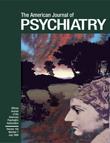Recovered Memories and False Memories Memory, Trauma Treatment, and the Law
For many years, psychiatry turned a blind eye to the problem of child abuse. In 1975, the Comprehensive Textbook of Psychiatry(1) estimated the prevalence of incest as one case per million. The women’s movement changed all that. As many women began to speak out about the violence they endured in their families, clinicians began to listen. It turned out that many psychiatric patients reported histories of childhood abuse. Some had always known about their abuse but were too frightened or ashamed to disclose it. Others—and this was a puzzling observation that defied ready explanation—recalled their traumatic experiences after a period of amnesia. Remembering made a difference; for many patients, the freedom to talk about the abuse they had suffered in childhood opened the door to recovery.
Remembering also opened the door to controversy. Family members accused of abusing their children organized a movement of their own. They blamed overly zealous therapists for creating an epidemic of false complaints by implanting in the minds of vulnerable patients “memories” of abuse that had never happened. Professional support for this argument was enlisted, mostly from laboratory researchers on memory, who tended to be contemptuous of clinical work. The bitter debate that ensued in the media and in the courtroom threatened to stifle thoughtful research and intimidate responsible clinicians. APA, as well as the American Psychological Association and the American Medical Association, all developed position papers on this issue in an attempt to bring some balance and moderation into the debate. Brief position papers could not do justice to the complex questions raised by the phenomenon of recovered memory, however.
A number of authors have attempted to address the controversy by presenting collections of essays in which both sides could have their say. The best of these edited volumes strive to achieve a genuinely balanced presentation (2, 3). Recovered Memories and False Memories, unfortunately, does not rank among them. The roster of contributors is weighted toward prominent advocates of the “false memory” position. Most of the chapters simply restate arguments that the authors have previously advanced. Although all of the contributors protest that they are trying to find common ground, they mostly talk past one another, and no real synthesis is accomplished.
Fortunately, the second volume reviewed here, Memory, Trauma Treatment, and the Law, is a comprehensive, scholarly, and even-handed review of this contentious subject. It is a tour de force. The authors have thoroughly reviewed the vast body of relevant research as well as the clinical and legal literature and presented their own conclusions. The tone is calm, the writing is clear and straightforward, and the scope is exhaustive (the bibliography alone runs to 62 pages). The topics covered range from the basic science of memory to the case law of delayed discovery. There are excellent summaries of the current state of research into such complex phenomena as hypnosis, suggestibility, dissociation, and traumatic memory. The authors are always careful to discriminate between areas of well-established scientific consensus and areas of uncertainty or speculation. Clinicians will particularly appreciate the sensible discussion of the standard of care in trauma treatment. As the 1998 winner of the Manfred F. Guttmacher Award from APA and the American Academy of Psychiatry and Law, this book seems destined to become the standard reference in the field, a distinction it fully deserves.
1. Henderson DJ: Incest, in Comprehensive Textbook of Psychiatry, 2nd ed, vol 2. Edited by Freedman AM, Kaplan HI, Sadock RJ. Baltimore, Williams & Wilkins, 1975, p 1536Google Scholar
2. Appelbaum PS, Uyehara LA, Elin MR (eds): Trauma and Memory: Clinical and Legal Controversies. New York, Oxford University Press, 1997Google Scholar
3. Pezdek K, Banks WP: The Recovered Memory/False Memory Debate. New York, Academic Press, 1996Google Scholar



